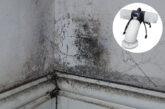
‘Short course’ entry routes will no longer be recognised.
NICEIC and ELECSA have announced changes to their existing assessment processes and future enrolment criteria.
The move responds to the 2020 update to the industry agreed Electrotechnical Assessment Specification, the document which all Certification Bodies (CBs) must adhere to when designing and conducting assessments to verify the technical competence of businesses.
One of the most significant changes is seen in the new applicant process, which as of September 1, 2021, will no longer accept short courses, auditable evidence, and certificates of competence as forms of recognised education*. In line with the 2020 EAS update, this change effectively closes ‘short course’ entry routes for new applicants.
“The 2020 EAS update is a significant step forward for the entire industry”, said John O’Neill, NICEIC and ELECSA’s Director of Technical Excellence.
“For many years now, there have been calls from contractors and industry to tighten entry criteria, and today’s announcement does just that.
“Moving forward, we will continue to focus on qualifications, experience, competence and behaviours as we assess our contractors, ensuring NICEIC and ELECSA registrants remain at the forefront of the industry, protecting consumers against the dangers of substandard electrical installations”
Not exclusive to new applicants existing NICEIC and ELECSA registrants will also see changes resulting from the EAS update. Following more stringent requirements, assessors will need to see more detailed evidence in areas such as ongoing CPD, adequate supervision of employed persons and appropriate levels of insurance depending on the work undertaken. Designed to verify continued competence, full details of the enhanced requirements can be seen on the NICEIC website.
Commenting on the news Martyn Allen, Electrical Safety First’s Technical Director, said: “We very much welcome the EAS update and are delighted to see NICEIC and ELECSA promoting these vital changes.
“In industries such as ours, competence is key, and safety is paramount. The changes seen within this update are essential as collectively we strive to raise standards and protect consumers.”
Created by a cross-industry management committee, the EAS update will impact the entire electrotechnical industry as all Certification and Registration bodies are required to implement the changes.
When discussing the update, ECA’s Technical Director, Mike Smith said: “It’s great to the see the Electrical Industry coming together under the EAS to agree higher standards within the Specification. ECA, alongside NICEIC, ELECSA and other Certification/Registration Bodies, are committed to implementing change to drive improvement across the industry.
“Electrical work is skilled and must be undertaken by qualified, competent contractors. The EAS document underpins how we as an industry assess this, and the update reflects our continued focus on improvement.”
If you’re an existing NICEIC / ELECSA registrant and want to know more about EAS and how it will impact you and your business, click here








